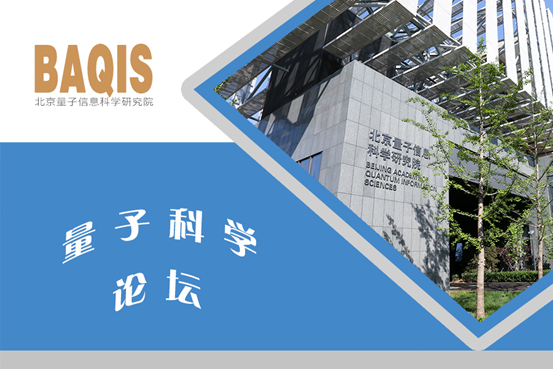BAQIS Quantum Science Forum 89: Phonon engineering of TLS defects in superconducting circuits
2023/06/20

Date and Time: 20-June-2023 2pm
Speaker: Dr. Mo Chen, California Institute of Technology, USA
Host: Fei Yan, BAQIS
Title: Phonon engineering of TLS defects in superconducting circuits
Abstract:
Superconducting quantum processors have emerged as the leading platform for quantum computing, with demonstrated potential for quantum error correction. However, achieving scalable fault-tolerant quantum computation requires significant improvements in qubit coherence, which is primarily limited by the presence of microscopic two-level system (TLS) defects at the qubit's constituent material interfaces. Under the assumption that the unfavorable TLS properties cannot be changed, previous efforts to tackle this challenge mostly focused on superconducting circuit designs that reduce the negative impact of TLS, but advancements have started to plateau.
In this seminar, I will introduce an orthogonal approach that engineers TLS properties and makes them favorable. First, I will introduce a hybrid platform which embeds the superconducting circuits and TLS within an acoustic metamaterial design that features a GHz-wide acoustic bandgap at microwave frequencies. This bandgap structures the acoustic bath of TLS, suppresses direct phonon emission from TLS, and extends their relaxation time by two to three orders of magnitude, with the longest T1 exceeding 5 ms. Next, I will discuss quantum sensing of individual low-frequency TLS fluctuators (MHz) in this hybrid platform, using the long-lived TLS as a probe to gain further insights into the defect physics.
About the Speaker:
Mo Chen is a postdoctoral scholar in the Department of Applied Physics and the Institute for Quantum Information and Matter at the California Institute of Technology. He received his B.S. in Optics from Fudan University in 2012 and his S.M. and Ph.D. in Mechanical Engineering from the Massachusetts Institute of Technology in 2015 and 2020, respectively. His research interests are focused on gaining a fundamental understanding of device physics and applying that knowledge to engineer novel quantum devices, such as qubits, quantum sensors, and quantum memories.
 中文
中文 Email
Email QCloud
QCloud Log in
Log in
